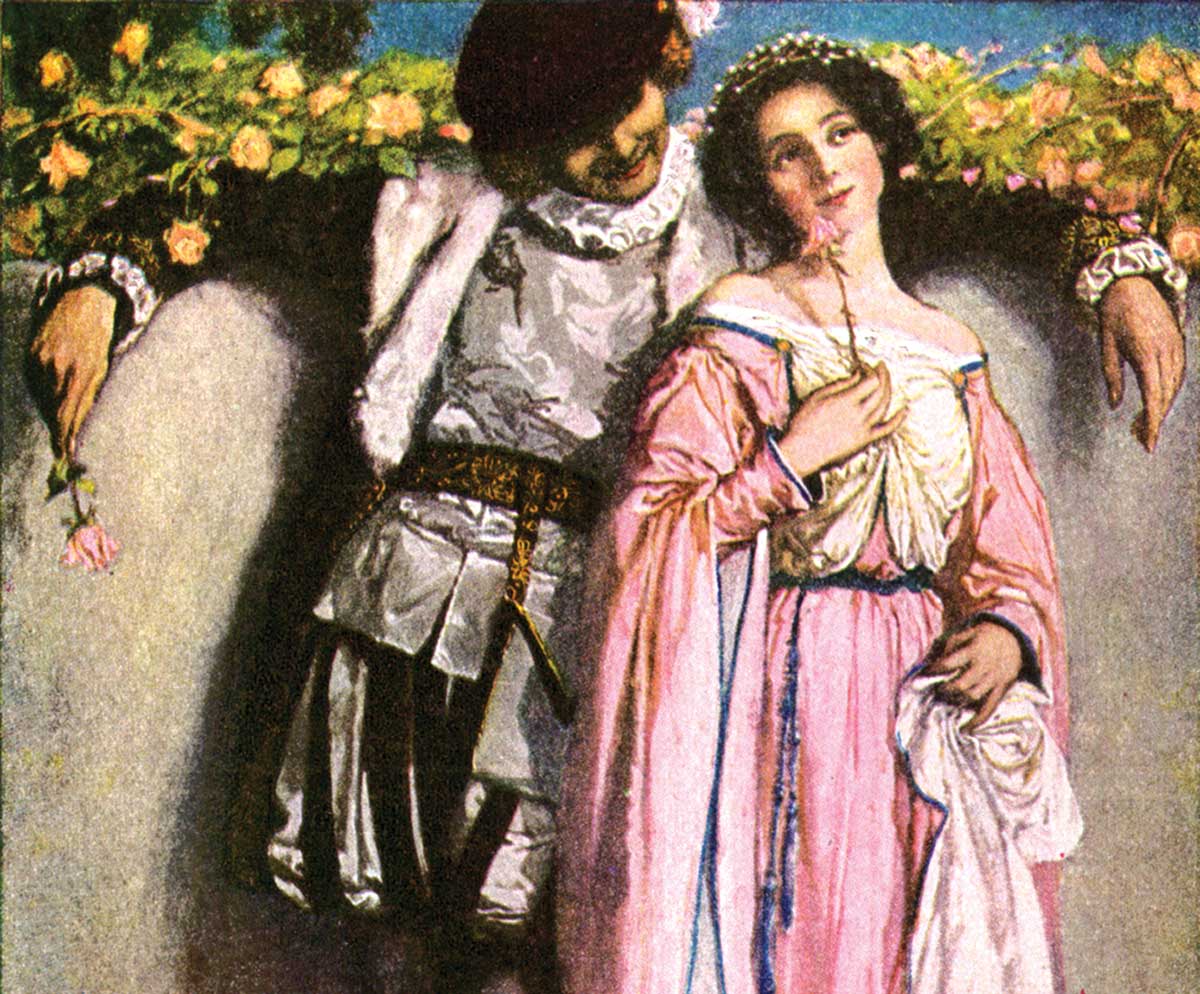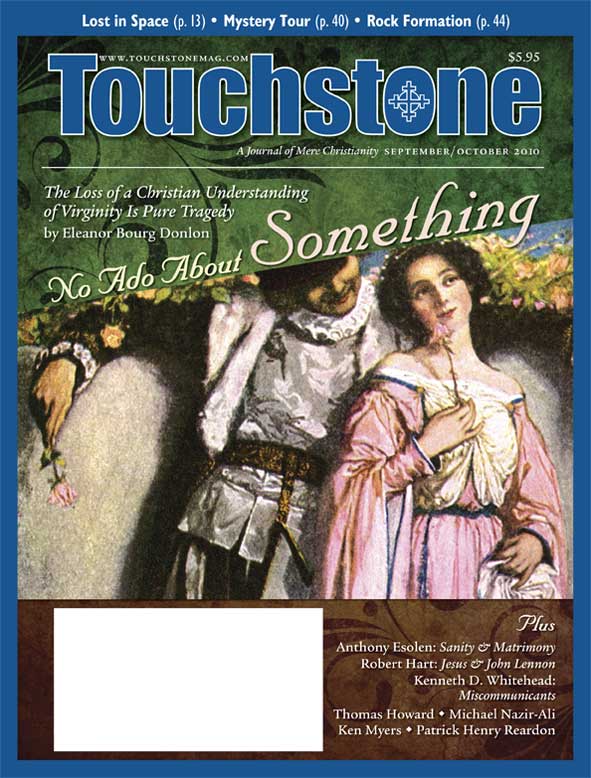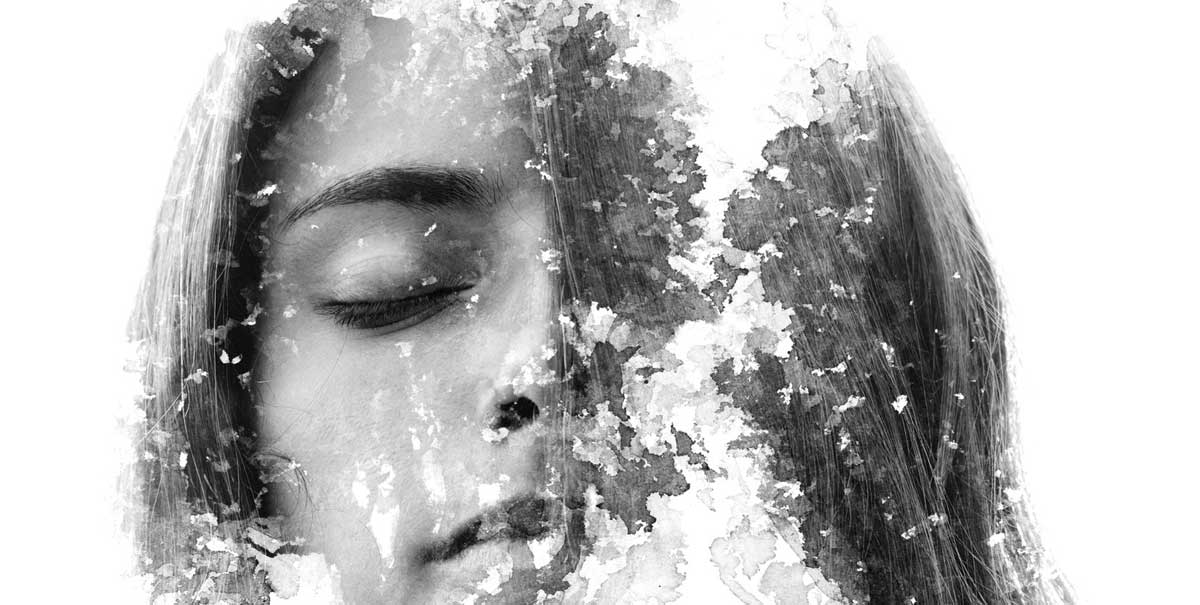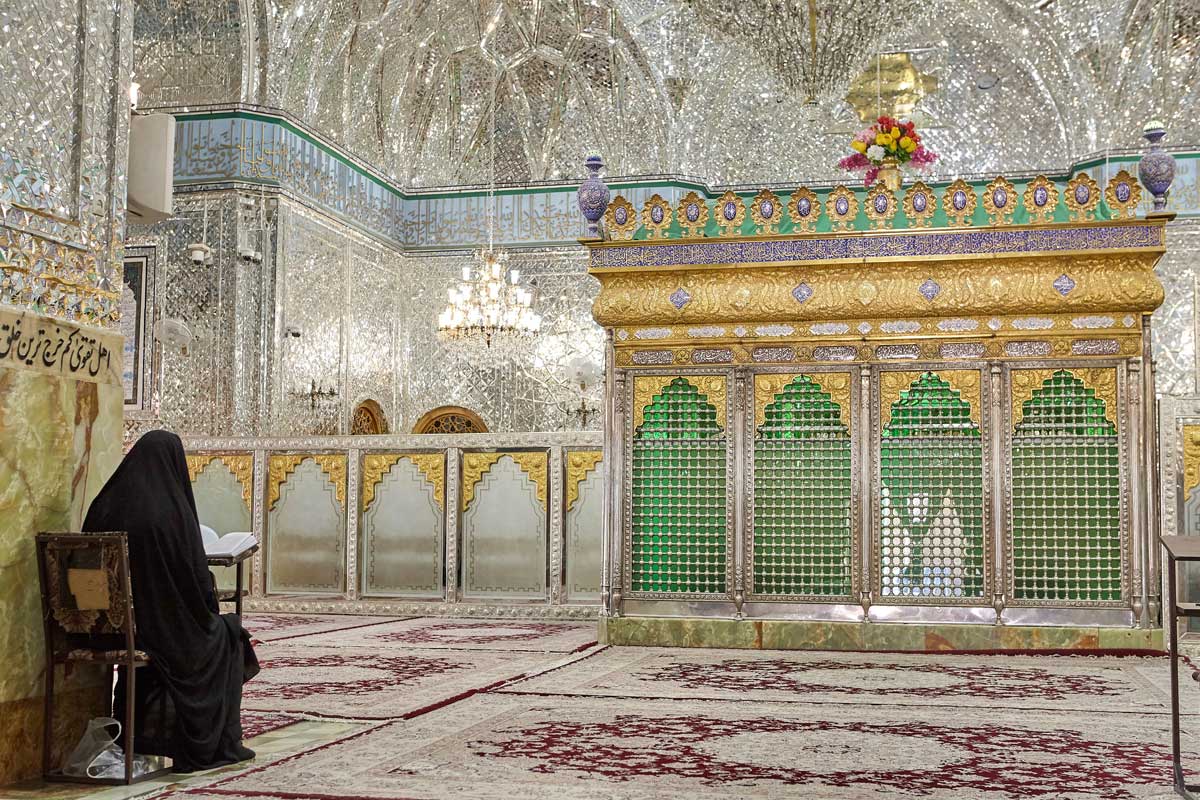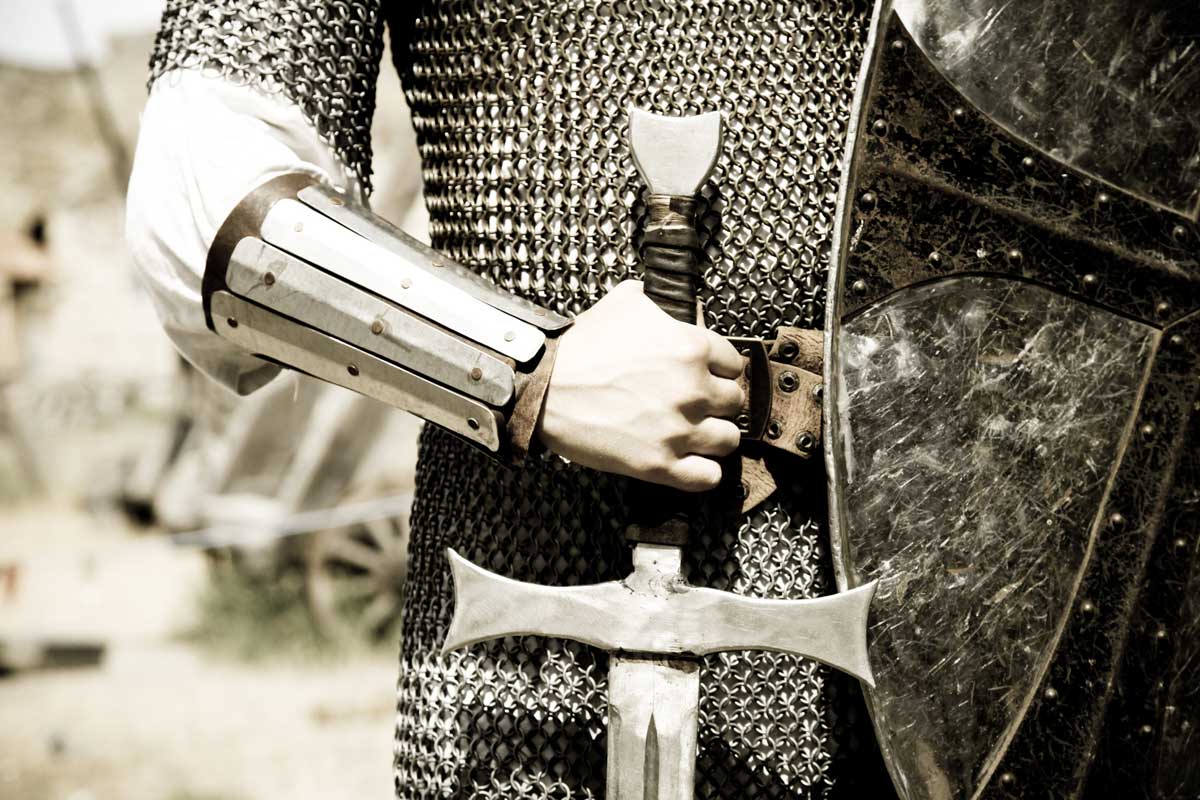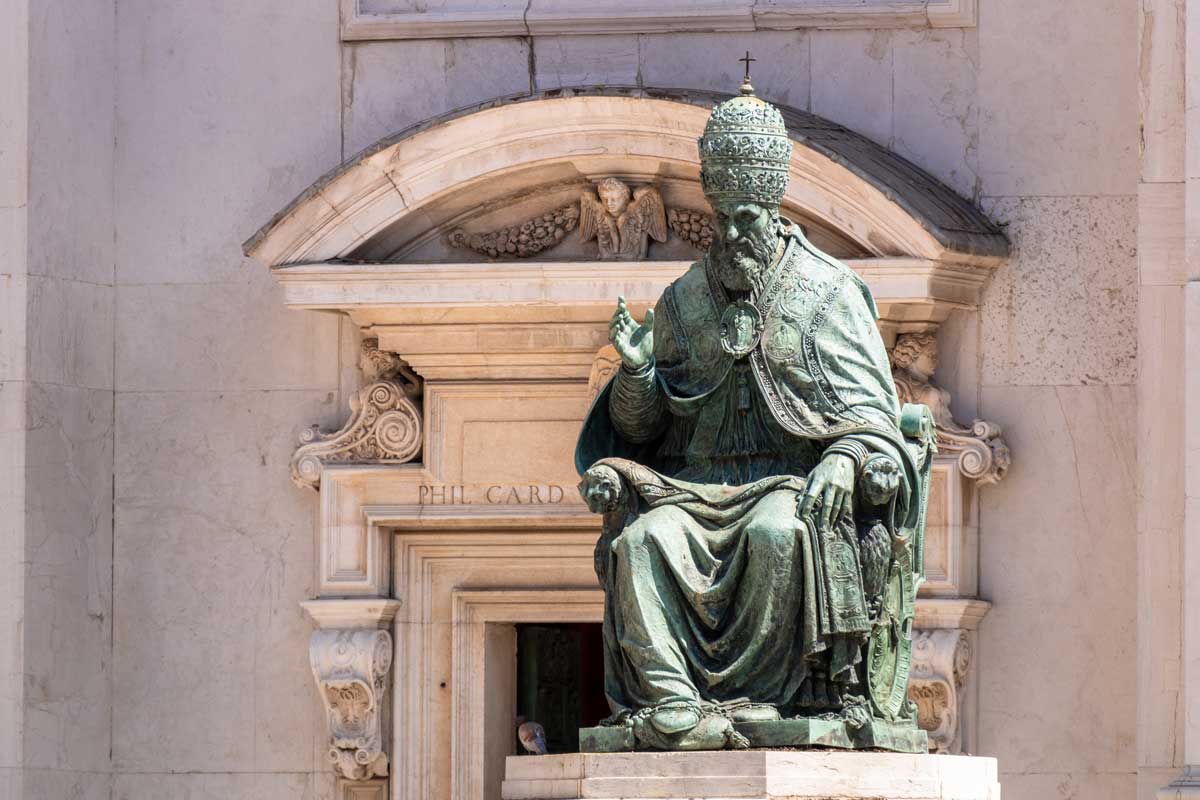Feature
No Ado About Something
The Loss of a Christian Understanding of Virginity Is Pure Tragedy
by Eleanor Bourg Donlon
The drama of Shakespeare’s Much Ado About Nothing hinges on the question of a young lady’s virginity. Is Hero the innocent maiden she appears to be, or is she a brazen, despoiled liar? After various plot twists and turns, the play concludes with the assertion of her virtue: “Nothing certainer,” she declares. As “surely as I live, I am a maid.”
Such a plot point would be unlikely to resonate with many modern viewers. “Why should she be a virgin, anyway?” one might ask. “Is there something wrong with her?”
The BBC certainly found it problematic. In its 2005 version of Much Ado, one of four plays adapted for its 2005 television series ShakespeaRe-told, the “problem” of Hero’s virginity was firmly dealt with—by having it summarily defused as an issue from the get-go. No shrinking virgin violet this Hero. Modern audiences could tune in without fear.
But this is more than a question of literary license; the point at stake is a modern moral disconnection, which is aptly illustrated by the juxtaposition of Shakespeare’s original play with the 2005 adaptation. And the consequences of this moral disconnection are of staggering importance, far beyond any questions of the BBC’s ratings.

Two Very Different Heros
In Shakespeare’s play, the villainous Don John, driven by hatred for his regal brother, Don Pedro, and for his brother’s lieutenant and close friend Claudio, concocts a plot to sabotage Claudio’s pending nuptials to the beautiful and virtuous Hero. The villain insists that Hero is “no maid” and stages a scene in which he tricks Claudio into believing he overhears Hero cavorting with a lover (it is really Hero’s maid with one of Don John’s servants).
Stricken and outraged, Claudio waits till all are assembled for the marriage ceremony, and then he and Don Pedro denounce Hero as “an approvèd wanton . . . a common stale.” Hero faints from shock and is believed to be dead. But all ends well, for Don John’s plot is uncovered, and Hero’s “death,” which proves to have lasted “but whiles her slander lived,” is followed by her social rebirth with her virtue triumphantly reestablished. The play concludes with embracing and dancing, and with more than one wedding in the offing.
Contrast this to the BBC’s 2005 Much Ado. This tale takes place in a television news studio. Weathergirl Hero is willing to sleep with the morose and universally disliked Don because she feels sorry for him. Their liaison takes place off-screen, but their heart-to-heart discussions of feelings and relationships are sufficiently nauseating to the viewer.
The faint and pretense at death of the play’s Hero are morphed in the BBC version into a life-threatening accident. The modern Hero “dies” to escape male persecution. Her erstwhile bridegroom, Claude, is overwhelmed with sorrow—not because she is innocent, but because, since he was so anti-modern as to care about her virtue in the first place, he had cruelly and tactlessly exposed her before their mutual friends.
Eleanor Bourg Donlon , a Dappled Things (www.dappledthings.org) assistant editor, works as a freelance writer and editor in Charlottesville, Virginia. Her writing has also appeared in The Saint Austin Review. More of her work is available at eleanorbourgdonlon.com.
subscription options
Order
Print/Online Subscription

Get six issues (one year) of Touchstone PLUS full online access including pdf downloads for only $39.95. That's only $3.34 per month!
Order
Online Only
Subscription

Get a one-year full-access subscription to the Touchstone online archives for only $19.95. That's only $1.66 per month!
bulk subscriptions
Order Touchstone subscriptions in bulk and save $10 per sub! Each subscription includes 6 issues of Touchstone plus full online access to touchstonemag.com—including archives, videos, and pdf downloads of recent issues for only $29.95 each! Great for churches or study groups.
Transactions will be processed on a secure server.
more on sex from the online archives

28.2—March/April 2015
Man, Woman & the Mystery of Christ
An Evangelical Protestant Perspective by Russell D. Moore
more from the online archives
calling all readers
Please Donate
"There are magazines worth reading but few worth saving . . . Touchstone is just such a magazine."
—Alice von Hildebrand
"Here we do not concede one square millimeter of territory to falsehood, folly, contemporary sentimentality, or fashion. We speak the truth, and let God be our judge. . . . Touchstone is the one committedly Christian conservative journal."
—Anthony Esolen, Touchstone senior editor






